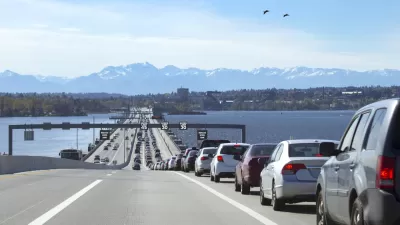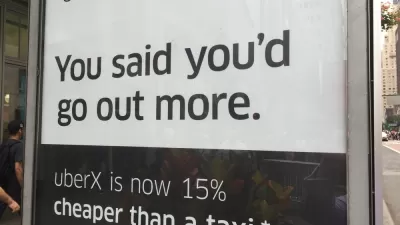A small group of test subjects, enabled with the use of a chauffeur, increased driving distances by a collective 83 percent.

Aaron Gordon shares news of research that attempts to duplicate the effect of rolling out a worldwide fleet of self-driving cars available for use by anyone with the money to pay for a ride.
Mustapha Harb, a Ph.D. candidate at the University of California Berkeley’s Department of Civil and Environmental Engineering, duplicated an autonomous future by hiring a bunch of chauffeurs to drive people around. "The chauffeur…will do the driving for you. And, just like the most optimistic AV future of fully autonomous robot cars zooming around, you don’t even have to be in the car," explains Gordon.
"Using 13 volunteers (a very small sample size due to budgetary constraints) from the San Francisco Bay Area who owned cars, Harb and his team studied their travel patterns using GPS trackers on their cars and phones for one week, then gave them a chauffeur for a week who would drive the participants’ personal vehicles for them. Finally, the researchers observed the subjects for a final week to look for any changes returning to their chauffeur-less life."
As for the findings, the study reports that subjects "increased how many miles their cars covered by a collective 83 percent [pdf] when they had the chauffeur versus the week prior."
The article includes a lot more context, in the form of other historical innovations in transportation that changed the world, as well as discussion of what the study's findings could mean for an autonomous future, should self-driving cars finally become a viable product at scale.

Maui's Vacation Rental Debate Turns Ugly
Verbal attacks, misinformation campaigns and fistfights plague a high-stakes debate to convert thousands of vacation rentals into long-term housing.

Planetizen Federal Action Tracker
A weekly monitor of how Trump’s orders and actions are impacting planners and planning in America.

In Urban Planning, AI Prompting Could be the New Design Thinking
Creativity has long been key to great urban design. What if we see AI as our new creative partner?

Portland Raises Parking Fees to Pay for Street Maintenance
The city is struggling to bridge a massive budget gap at the Bureau of Transportation, which largely depleted its reserves during the Civd-19 pandemic.

Spokane Mayor Introduces Housing Reforms Package
Mayor Lisa Brown’s proposals include deferring or waiving some development fees to encourage more affordable housing development.

Houston Mayor Kills Another Bike Lane
The mayor rejected a proposed bike lane in the Montrose district in keeping with his pledge to maintain car lanes.
Urban Design for Planners 1: Software Tools
This six-course series explores essential urban design concepts using open source software and equips planners with the tools they need to participate fully in the urban design process.
Planning for Universal Design
Learn the tools for implementing Universal Design in planning regulations.
Gallatin County Department of Planning & Community Development
Heyer Gruel & Associates PA
JM Goldson LLC
City of Camden Redevelopment Agency
City of Astoria
Transportation Research & Education Center (TREC) at Portland State University
Jefferson Parish Government
Camden Redevelopment Agency
City of Claremont





























